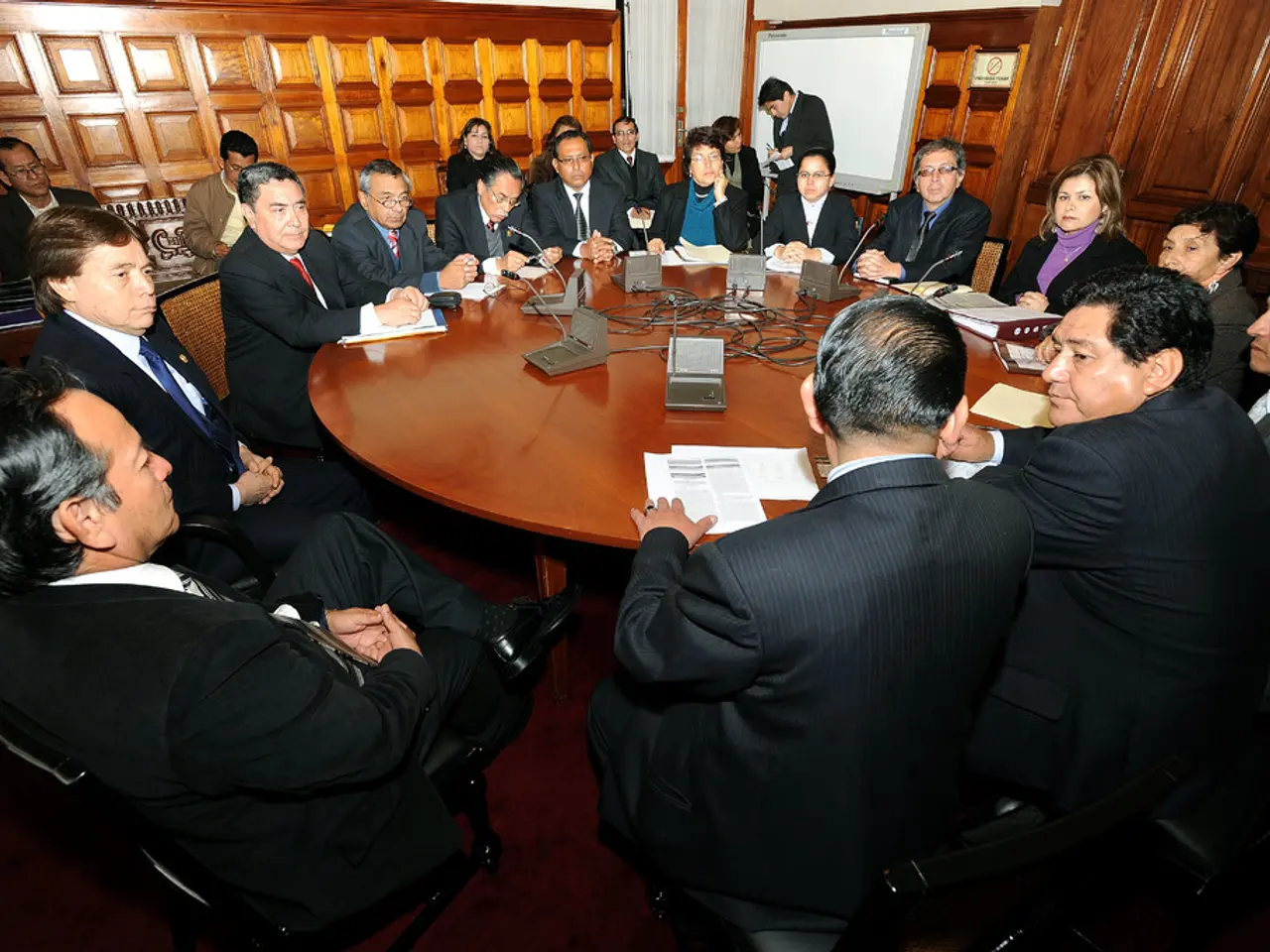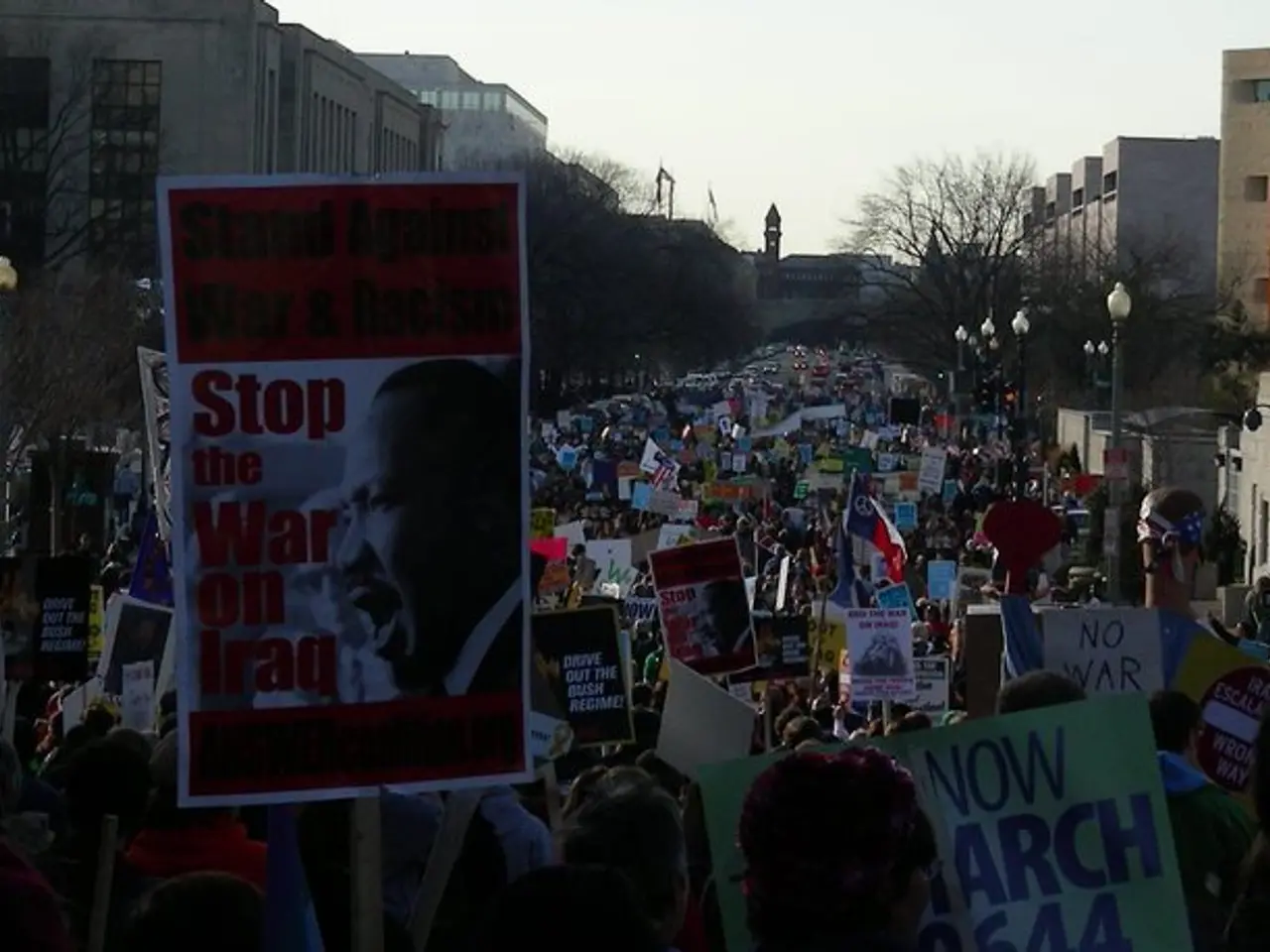A significant number of people are set to participate in rallies and concerts in Bangladesh, marking the anniversary of Prime Minister Sheikh Hasina's removal from office.
In the heart of Bangladesh, the first anniversary of the 2024 student-led protests that toppled Prime Minister Sheikh Hasina's 15-year authoritarian rule was marked by a wave of nationwide commemorations and political events. The day served as a symbolic moment in the country's transition towards democracy, with the National Citizen Party, formed by activists from the uprising, playing a pivotal role.
Commemorations and memorials were held in Dhaka's Shahbagh neighbourhood, where parents of the deceased protestors displayed photos of their children, students lit candles, and officials gave speeches to honour those who lost their lives during the protests and subsequent crackdown.
Led by Nobel laureate Muhammad Yunus, the interim administration introduced a roadmap for democratic reform aimed at uniting the nation and moving away from the previous authoritarian practices. This roadmap, supported by major political parties such as the Bangladesh Nationalist Party (BNP) and Jamaat-e-Islami, followed the banning of Hasina’s Awami League.
However, challenges in justice and governance persist. Despite the ongoing investigations into the crackdown that claimed hundreds of lives, no senior security officers have been indicted, leading to public demands for justice and accountability. The remnants of paramilitary groups feared under Hasina remain elusive.
Sheikh Hasina, who is in exile in India, faces trial for crimes against humanity related to the crackdown. The opposition party BNP, led by Khaleda Zia, participated in anniversary events, signaling their continued relevance. The country is preparing for elections expected before February 2026, which Yunus announced during the anniversary.
The anniversary highlighted both hope and frustration. While the uprising ignited a vision for a just and corruption-free Bangladesh, many citizens and observers note that real democratic transformation remains incomplete and difficult to achieve. The July Declaration, to be announced by Yunus, will formally recognize the 2024 student-led uprising and the shift towards democratic renewal.
In a statement, Yunus said, "Together, we will build a Bangladesh where tyranny will never rise again." The declaration is backed by major political groups, including the BNP, led by former premier Khaleda Zia. Yunus has pledged a commitment to democratic reform in the political journey from an uprising sparked by economic woes and repression to rule by an interim government. He has urged unity to protect the gains of the uprising while his government holds reform talks with political parties and civil society.
Police in Dhaka are on high alert, with armoured vehicles patrolling the streets to prevent disruptions by the banned Awami League. Yunus has stated that fallen autocrats and their self-serving allies remain active. Critics of the July Declaration warn that its impact could be largely symbolic in the absence of a legal framework or parliamentary consensus.
As the nation moves forward, the focus remains on ensuring a peaceful, fair, and transparent election, with Yunus promising a return to full democratic rule potentially happening early next year.
- The interim administration, led by Nobel laureate Muhammad Yunus, has announced a commitment to democratic reform and a roadmap for the country's political journey, aiming to build a Bangladesh free from tyranny.
- In the realm of business and finance, the transition towards democracy is expected to bring a positive impact on the country's economy, as improvement in governance and justice might attract foreign investments.
- While sports have traditionally been a unifying force, recent events in Bangladesh have prompted athletes and coaches to voice their opinions on the state of democracy and the need for accountability in the wake of the 2024 student-led protests.
- With ongoing investigations into war-and-conflicts, crimes-and-justice still plaguing the country, the media continues to play a crucial role in unravelling the truth, holding power accountable, and maintaining the public's right to know.






